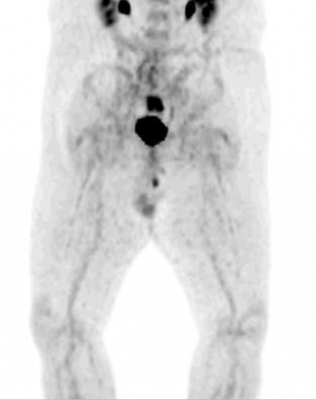November 15, 2013 — For patients who fail to respond to current first-line and second-line treatments for colorectal cancer liver metastases (also known as salvage patients),
radioembolization with Y-90 microspheres could extend survival according to new research published in the November issue of
The Journal of Nuclear Medicine. A systematic review conducted by researchers showed that approximately 50 percent of salvage patients have an overall survival of more than 12 months after this nuclear medicine therapy.
Researchers performed a structured review to gather all available evidence on radioembolization for the specific group of patients with colorectal cancer liver metastases.
“Although quite some reviews are printed on the subject of radioembolization, we felt that a structured and comprehensive review on survival and response data for these patients was lacking,” said Charlotte E.N.M. Rosenbaum, Ph.D. and lead author of the
study “Radioembolization for Treatment of Salvage Patients with Colorectal Cancer Liver Metastases: A Systemic Review.”
Researchers reviewed a total of 13 articles on Y-90 radioembolization as a monotherapy and 13 articles on Y-90 radioembolization as a combined with chemotherapy. Among the studies, disease control rates ranged from 29-90 percent in the monotherapy studies, which involved 901 patients. In the studies in which Y-90 radioembolization was combined with chemotherapy, involving 472 patients, disease control rates ranged from 59-100 percent.
“From the studies included in this systematic review, survival proportions of approximately 50 percent were found,” said Rosenbaum. “Therefore, in this group of salvage colorectal cancer liver metastases patients who otherwise have no regular treatment options and a life expectancy of less than six months, Y-90 radioembolization seems to be a hopeful treatment option.”
She continued, “Our paper shows all published data on this subject from the first randomized trial onwards. Furthermore, we have determined 12-month survival proportions for all included articles to provide a better overview and to better allow for comparisons. Finally, this overview of the literature shows which topics have not been the focus of much research and may thus be interesting for further work.”


